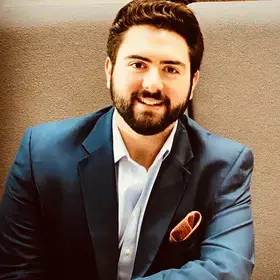Deshae Jenkins, ’19SPS, Narrative Medicine, and Andee Willett, ’21SPS, Narrative Medicine, led a practicum workshop with Sanctuary for Families, an organization that supports survivors of domestic violence, in a series of workshops with survivor leaders. The following year, poems and other narratives from that workshop were collected in the volume Words of Hope. Jenkins and Willett discuss their process and methodology for the workshops.
As part of their Narrative Medicine Practicum course, Jenkins and Willett conducted six workshops with mentors and community leaders associated with Sanctuary for Families. Sanctuary for Families is New York’s leading service provider and advocate for survivors of domestic violence, sex trafficking and related forms of gender violence. Jenkins and Willett led close-readings of a selection of literature, and encouraged the group to explore their own personal experiences in relation to the text. The workshops were designed to complement Sanctuary for Families’ commitment to empowerment, healing, education, advocacy, and self-determination.
The practicum entailed a workshop series that aimed to teach its participants the practice of narrative medicine, with hopes that it could support their professional environment and advocacy. Further, Jenkins and Willett's workshop series was the first series that began a partnership between Columbia's Narrative Medicine program and Sanctuary for Families.
“I think that I was always aware of the group’s history of trauma as something that would always be present in the room, whether mentioned or implied,” said Jenkins, of her experience leading the practicum. “I found that I had to be more attentive to language and to material, how certain experiences might activate the text in a way that differed from my own interpretation. While we have been learning about the principles and practice of narrative medicine, this experience allowed me to put those skills into practice.”
We found that the participants not only excelled in their ability to close read, but they also drew effortless connections between the text and their lived experiences.
Narrative medicine is an interdisciplinary field that brings powerful narrative skills of radical listening and creativity from the humanities and the arts to address the needs of all who seek and deliver healthcare. It enables patients and caregivers to voice their experience, to be heard, to be recognized, and to be valued, improving the delivery of healthcare. This evolving transdisciplinary field of enquiry addresses issues of structural inequality and social justice in healthcare. Jenkins and Willett reflected on how practicing narrative medicine equipped their workshop participants and themselves with new perspectives and tools to approach their healthcare practice critically and with compassion.
“The practicum focused on facilitating discussion on texts of a variety of genres--poems, short stories, excerpts from nonfiction and fiction, graphic novel excerpts, and even video montages,” said Willett. “Following a lively discussion that sought to explore both formal elements in the work as well as affective relationship to the work, we shifted to ‘representation’ and used prompts to guide short writing of any form. It gratifies me to hear how these community leaders used the tools we shared with them to give voice to their experiences, both inside and outside of these workshops. My time with this group of community leaders has certainly informed my pursuit of a career as a physician as one entailing close listening and collaboration both with colleagues and those we serve.”
The workshop series was repeated in the following years with new student-facilitators from Columbia. The skills and writing from these workshops seeded a poetry collection, Words of Hope, which includes poetry from the workshop participants. Some of the authors read from Words of Hope at an event supported by the NYC Mayor's office, "16 days 2020,” as part of the United Nations Secretary-General’s campaign, Unite to End Violence Against Women.
Jenkins studied Biology/Biological Sciences at Stanford University, earned her M.S. in Narrative Medicine at Columbia, and is currently pursuing her M.D. at Rutgers Robert Wood Johnson Medical School. Willett studied Cognitive Science and German Studies at Vassar College, is pursuing their M.S. in Narrative Medicine at Columbia, and plans to attend medical school.
Learn more about Columbia's M.S. in Narrative Medicine, which prepares health professionals, writers, and scholars to apply the skills and values of narrative understanding to improve outcomes for both patients and caregivers.


